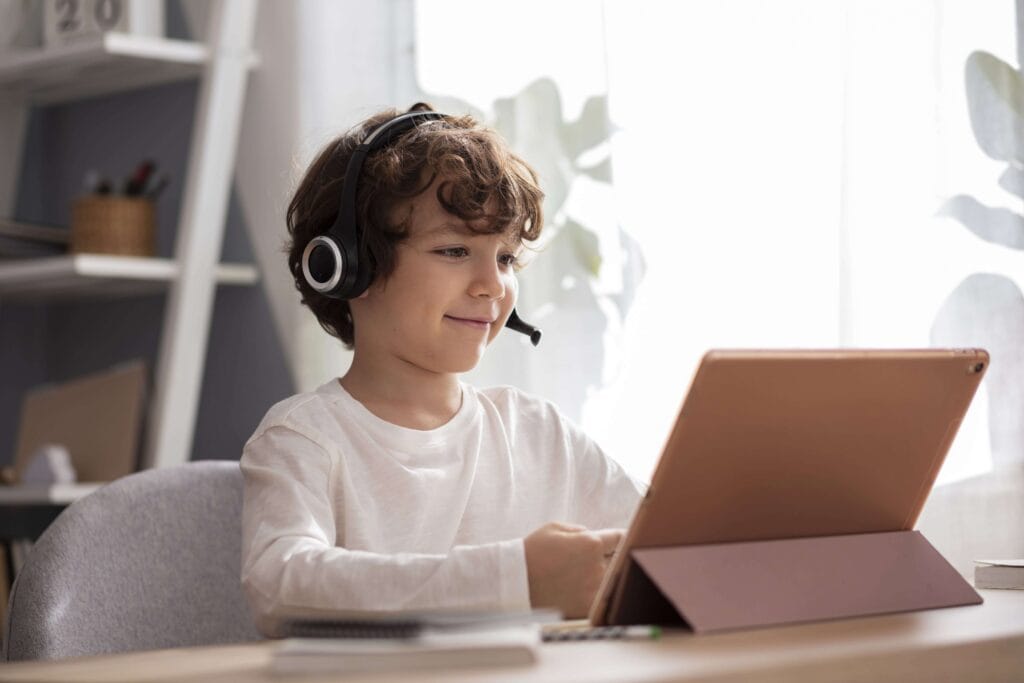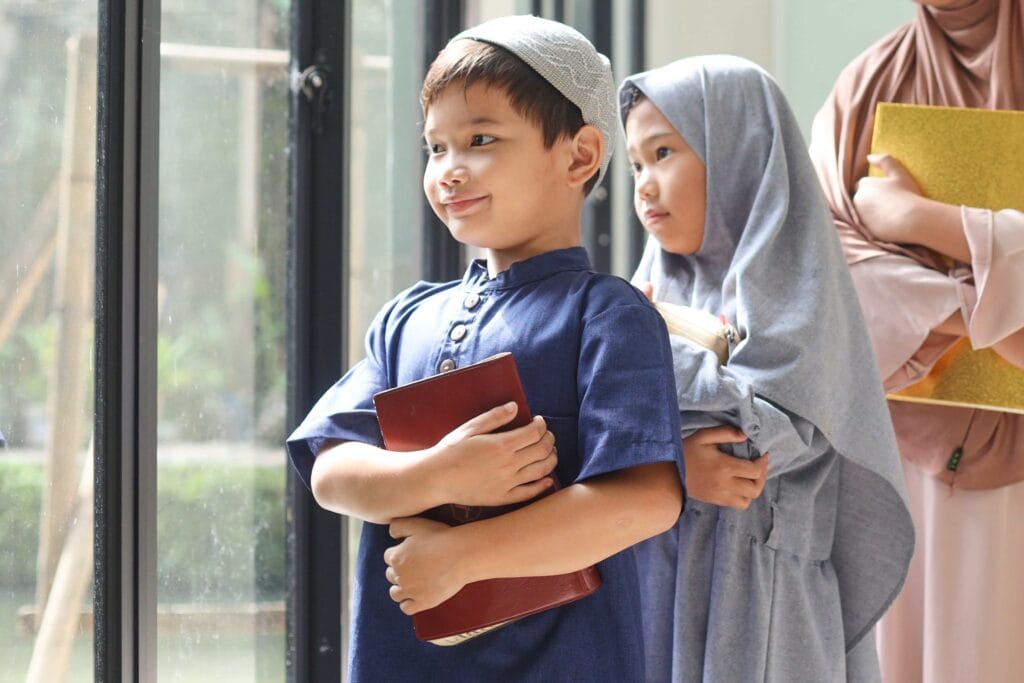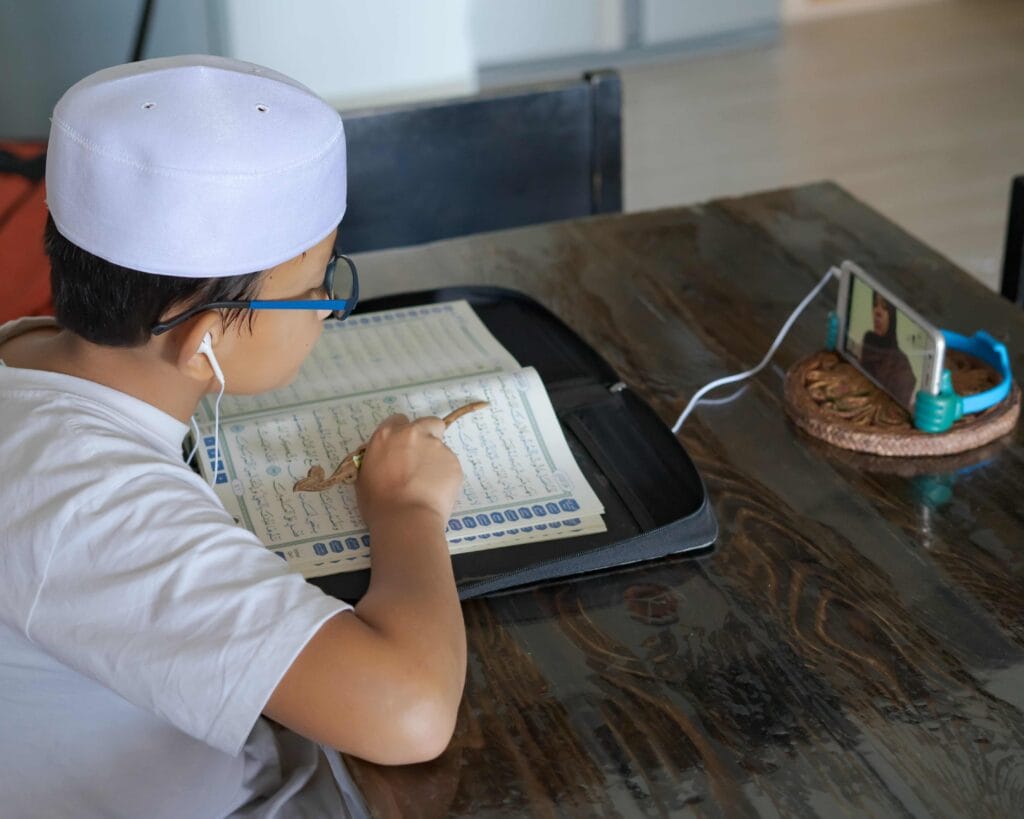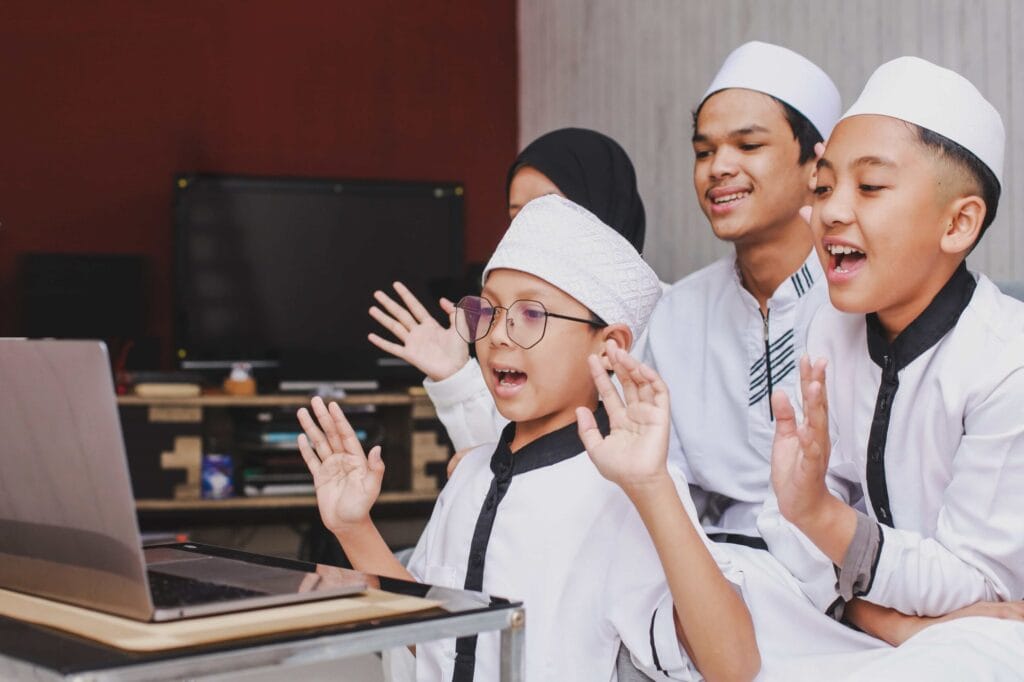Online Quran Classes for Kids – Fun & Effective Learning
Some kids learn fast, others take a little time — that’s fine. At Al Tahoor Quran Institute, we keep things easy for both. The teacher listens, speaks clearly, and gives space to learn without pressure. It’s all online, so your child can join from home. The class isn’t too long, and there’s no rushing through lessons. It’s just a calm, simple way to start. If you’ve been looking for online Quran classes for kids, this might be the one that fits.


Why Kids Love Our Online Quran Classes
Engaging Quran Lessons Designed Just for Children
Kids don’t need long lectures or big words to learn. They need a teacher who speaks to them kindly, uses easy steps, and keeps things light. That’s how we do it. We use pictures, short stories, and calm voices. Even kids who don’t sit still for long enjoy class. And for children just starting, our method works great. That’s why it’s a good fit for the Quran for beginners.
How We Make Tajweed Fun for Young Learners
Tajweed sounds hard at first, but we don’t teach it like a list of rules. For kids, we start small — sounds, letters, words. We use colors, examples, and practice without pressure. They learn the rules without even realizing it. That’s how Tajweed rules for kids become easy. One sound at a time, one smile at a time.
Safe & Trusted by Parents Worldwide
Parents want safety, and we take it seriously. Every class is watched. Teachers are trained. No random links, no strange chats. Just your child, learning the Quran, at home, with someone you can trust. That’s why families from all over keep coming back.
How We Make Tajweed Fun for Young Learners
Tajweed sounds hard at first, but we don’t teach it like a list of rules. For kids, we start small — sounds, letters, words. We use colors, examples, and practice without pressure. They learn the rules without even realizing it. That’s how Tajweed rules for kids become easy. One sound at a time, one smile at a time.
Age-Specific Quran Programs for Kids

Pre-K & Kindergarten (Ages 3–5): Quran Basics Through Play
Little kids don’t need a lot of rules. They just need someone kind who can repeat things slowly and make it fun. So that’s what we do. A few Arabic letters, maybe a dua, perhaps a short line from a Surah — that’s enough. No pressure. Just play, listen, repeat. Some smile, some don’t talk much — both are fine.

Elementary School (Ages 6–10): Memorization & Islamic Values
At this age, they start to catch on. We keep it steady. They pick up short Surahs, learn what they mean, and start saying them better. We don’t rush. Some days are better than others. It’s not just about memory — we teach them how to be kind, tell the truth, stuff they use every day—one small lesson at a time.

Tweens & Teens (Ages 11+): Deepen Understanding & Arabic Skills
Older kids want to know why. So we show them. What the Surah means, how to read it correctly, and what the words are in Arabic. Some ask a lot, some don’t — it’s all good. We don’t treat them like kids. We let them learn with space and respect. Bit by bit, they start feeling the meaning, not just the sound.
What Makes Our Kids’ Quran Classes Unique?
Interactive Tools: Games, Stories, and Quizzes
Kids get bored fast. So we mix things up — a quick game here, a story there, a little question at the end. It helps them pay attention without feeling like they’re stuck in school. They enjoy it, and that’s what matters.
Live Teachers Who Specialize in Child Education
Some teachers are good at explaining, but not everyone knows how to teach kids. You need a different approach. That’s why our teachers slow down, repeat things, and make the class feel safe. It’s not like an adult session. It’s softer, simpler. In each online Quran class for kids, we take time and talk at their level.
Progress Certificates to Motivate Young Learners
When a child sees their name on a certificate, their face lights up. It feels like they’ve done something significant. These small wins help them stay excited to learn more. Parents like seeing progress, and kids feel proud. Simple, but it works.
Curriculum Designed for Young Minds
How It Works for Busy Families
Flexible Scheduling – After School or Weekends
We get it — families are busy. That’s why we offer class times that fit around school, dinner, and even weekend plans. Whether you want a quick session after homework or something calm on a Saturday morning, we’ll find a time that works—no stress, no rushing — just Quran learning that fits into real life.
One-on-One or Small Group Classes (Kids Learn Better Together)
Some kids focus better alone, and others enjoy having a friend in class. You can choose what works best. In one-on-one lessons, teachers go at your child’s pace. In small groups, kids get to listen, learn, and laugh together — sometimes that makes all the difference. Either way, they stay engaged and feel supported.
Parent Dashboard: Track Your Child’s Progress
You won’t be left wondering how your child is doing. Our dashboard shows what they’ve learned, what’s next, and where they need help. You can check in anytime and stay connected with the teacher, too. It’s clear, simple, and built to keep parents in the loop without making things complicated.
Special Offer: First Month for Kids Only $25
Limited Spots – Book a Free Trial Class Today!
We know trying something new can feel like a big step, so we’ve made it easy. Your child can start learning the Quran for just $25 in the first month. No long-term commitment, no stress. Just a calm class with a kind teacher. Want to see how it works? Book a free trial — spots fill fast, especially after school hours, so don’t wait too long.

